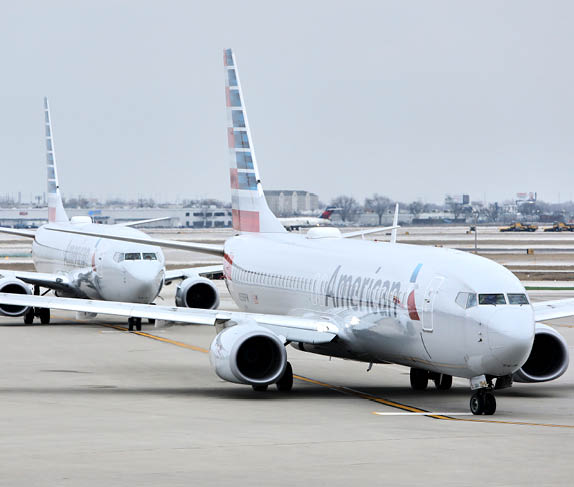Fitch Ratings has completed its periodic peer review of aircraft lessors, which is comprised of seven rated firms. As part of the review, Fitch affirmed the following ratings and revised the Rating Outlooks to Stable from Negative:
Air Lease Corporation’s (ALC) Issuer Default Rating (IDR) affirmed at ‘BBB’/Stable
Avolon IDR affirmed at ‘BBB-’/Stable
Dubai Aerospace Enterprise’s (DAE) IDR affirmed at ‘BBB-’/Stable
Fitch has affirmed the following ratings and maintained the Outlooks, driven by institutional support considerations:
Aircastle’s IDR affirmed at ‘BBB’/Stable;
BOC Aviation’s IDR affirmed at ‘A-’/Stable;
SMBC Aviation Capital’s IDR affirmed at ‘A-’/Negative.
Fitch has also maintained AerCap ‘BBB-’ IDR and debt ratings on Rating Watch Negative (RWN). Fitch adds that it could resolve the RWN “if and when AerCap makes sufficient progress toward securing term financing prior to the closing of the General Electric Aviation Services transaction”.
Fitch’s sector Outlook for aircraft lessors remains Negative. While passenger air traffic has improved since 1H20, travel volumes, particularly on long-haul international flights, remain well below pre-pandemic levels, and remain uncertain in the near-term as a result of coronavirus variants emerging globally and slower-than-anticipated vaccine rollouts in some regions. Consequently, Fitch expects airline credit profiles will continue to be pressured, which may further impair aircraft lessor operating cash flow generation over the Outlook horizon, the rating agency warns
For the standalone aircraft lessors (ALC, Avolon and DAE), Fitch states that it believes they have sufficient liquidity to withstand near-term reductions in financing availability and lease cash flows under both its base and downside case forecasts. Fitch believes that these lessors also have sufficient capitalization headroom to withstand moderate impairments in the base case forecast, although some may temporarily breach the leverage threshold of 3.0x in a downside case scenario where pandemic reductions in air traffic, airline solvency and financing availability last well into 2022, leading to additional repossessions and material impairments. The revisions of the Outlooks to Stable reflect Fitch’s expectation that these issuers will maintain sufficient headroom relative to Fitch’s downgrade triggers for liquidity coverage (greater than 1.0x) and debt to tangible equity (below 3.0x) over the Outlook horizon.
Issuer ratings and Outlooks that incorporate institutional support considerations (Aircastle, BOC Aviation, and SMBC) continue to be primarily influenced by the credit risk profiles of their institutional support providers and Fitch’s ongoing assessment of these providers’ willingness to extend financial support to subsidiaries in the event of need. To the extent the ratings and/or Outlooks of these support providers change, so too could the ratings and/or Outlooks of the aircraft leasing subsidiaries. Changes in the standalone credit profiles of the aircraft leasing subsidiaries and/or changes in Fitch’s assessment of the support providers’ willingness to extend support could also impact the ratings and/or Outlooks of aircraft leasing subsidiaries.

